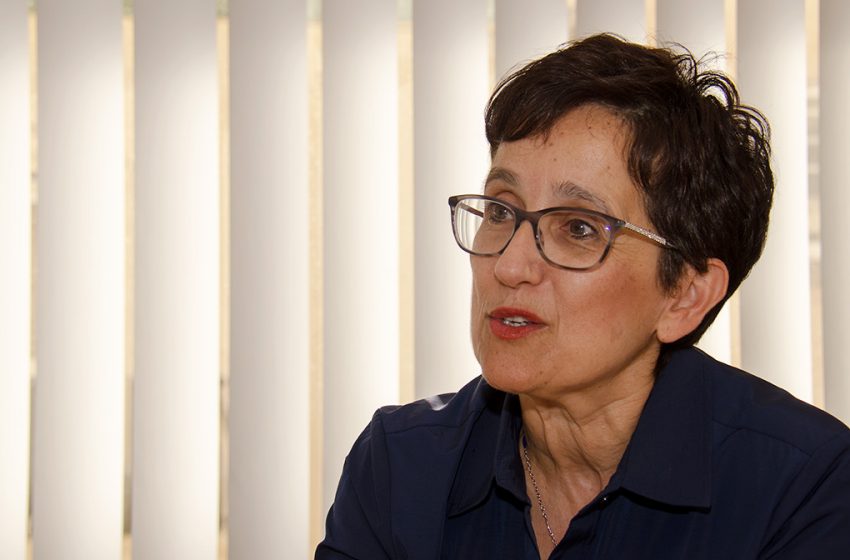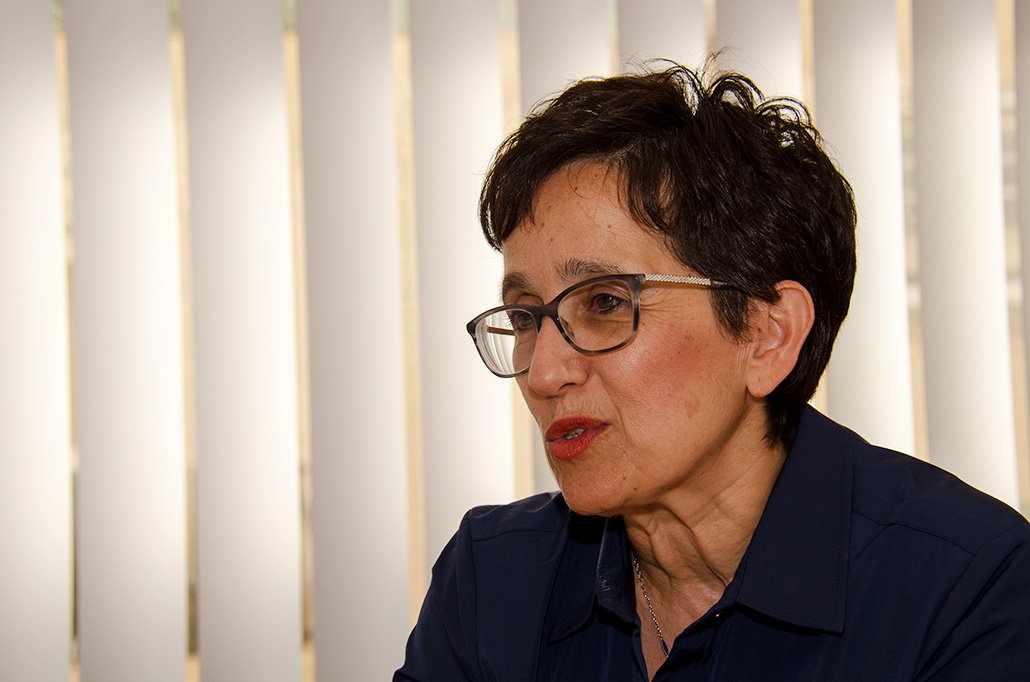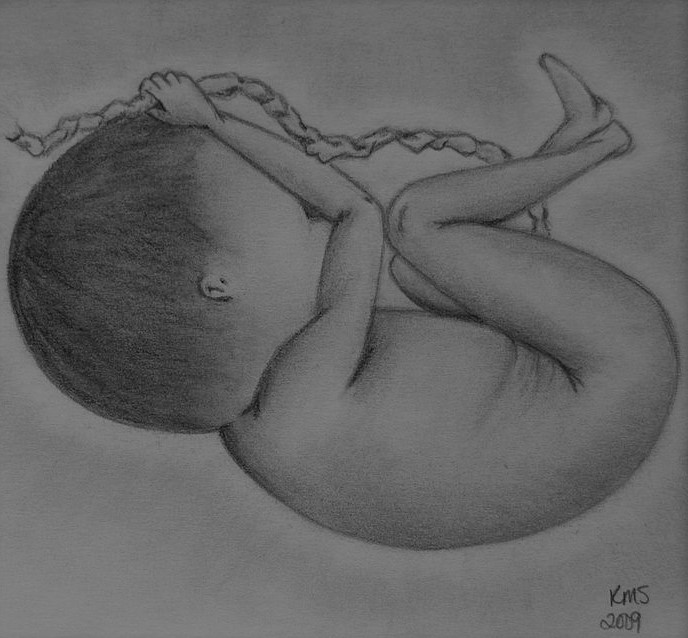The Unavailability of Abortion in Malta & Difficult Pregnancies – A Gynae’s Perspective

Dr Astrid Camilleri. Photo: Christina Gatt
Abortion in Malta is not an option. Gynaecologist Dr Astrid Camilleri describes a number of concrete challenges she encounters with women who find it hard to carry their child for nine months. She shares about the care and support she offers them and what other options are available besides abortion.
The Woman Struggling With Issues Of Mental Health
Dr Astrid distinguishes between her approach with a woman who is in a state of panic and another who has long standing mental disorders. She believes that when a woman is faced with an unplanned pregnancy, she is taken by storm. In these cases it is understandable that her initial reaction is one of rejection. Consequently, the mother can have the impulsion to do something drastic about the situation.
Dealing with the crisis
Dr Astrid believes that, in such situations, the first thing to do is to go into a thorough discussion with the person in front of her. “My role is to help the couple or the mother to think clearly. Sometimes the mother just needs to see and reason things out by discussing the situation. Most of the time, after one or more sessions, she realises that her initial reaction was rash. The mother realises that the situation is not so tragic after all. I have seen many turning points happen when the mother sees the foetus on ultrasound. When the mother feels that there is a living creature within her she actually bonds.”
Dr Astrid continues: “In some cases it is necessary to engage the help of a psychologist for more support. The psychologist can help the mother decide which is the best way forward. I work closely with several male and female psychologists who can help in this regard. If the mother chooses not to keep the baby, one can offer other options like adoption. One does all that one can to steer away from the decision to abort. I am happy to say that in my experience, besides all the women who after our discussions decided to keep their baby, about ten women decided to give the baby up for adoption. Unfortunately, at this stage, if the mother has decided not to continue with the pregnancy, she disappears, and seeks help elsewhere to abort.”
Sometimes guilt drives a woman away from the decision to abort. Other women try to justify their decision to abort by convincing themselves that they cannot offer the child a decent life. My question is always ‘are you ready to kill your child instead of giving him/her a life with someone else?’

The Consequences of Aborting or Keeping a Pregnancy
Dr Astrid believes that if the mother is considering abortion, she must be made aware of the consequences. “The consequences of aborting are usually psychological. They are rarely medical. However, online abortive pills, are unreliable and dangerous. They carry the risk of haemorrhage for the expectant mother. On the other hand, should the mother decide to proceed with the pregnancy it is our duty to offer as much support as possible. This is an admirable decision to take. By keeping the pregnancy the mother may have chosen to take a much more difficult path.
In the cases of severe mental health disorders Dr Astrid explains that “even if the pregnancy can be turbulent especially if the mother is on particular medications. However, these women can still deliver a healthy child.
The Woman Whose Life Is In Danger
 Dr Astrid confirms that the unavailability of abortion in Malta does not impinge in any way on the availability of optimal care for the pregnant mother. She confirms that direct abortion, the purposeful destruction of the preborn baby, is not medically necessary to save the life of the mother: “It is always our top priority to do all that is medically possible to safeguard the mother. Unfortunately, this is not always successful. However, we are rarely faced with situations where terminating the pregnancy increases the chances of survival for the mother.” With the excellent rate of survival for preterm babies in Malta, we can opt to deliver the baby as early as 26 weeks. Hence this reduces or completely removes, the risk of death for the mother.
Dr Astrid confirms that the unavailability of abortion in Malta does not impinge in any way on the availability of optimal care for the pregnant mother. She confirms that direct abortion, the purposeful destruction of the preborn baby, is not medically necessary to save the life of the mother: “It is always our top priority to do all that is medically possible to safeguard the mother. Unfortunately, this is not always successful. However, we are rarely faced with situations where terminating the pregnancy increases the chances of survival for the mother.” With the excellent rate of survival for preterm babies in Malta, we can opt to deliver the baby as early as 26 weeks. Hence this reduces or completely removes, the risk of death for the mother.
There are other times when the death of the embryo is inevitable. This is the case with ectopic pregnancies, when the embryo implants outside the uterus, such as in the fallopian tube. In such pregnancies, the growing foetus would burst the tube. Hence the pregnancy would still be interrupted. Intervening surgically, in these cases, saves the mother without changing the fate of the foetus.
The Woman Whose Baby Has A Foetal Abnormality Or Is A Still Born
Dr Astrid describes how parents are informed and supported when there is a prenatal diagnosis of a foetal abnormality. “Parents who are expecting a child with abnormalities are made fully aware of the situation as soon as it is confirmed. Then one has to prepare for possible eventualities according to the prognosis. The likelihood of survival after birth is discussed. Midwives in Malta offer a very sound support system for these parents. This support continues even after birth and includes psychological care. Abortion is not offered as an option.
Dr Astrid adds that “although the diagnosis is made prenatally, sometimes it is difficult to predict the extent to which the condition will affect the foetus after birth. In other situations, it is clear and one would know exactly the impact on the wellbeing of the child. Occasionally, there are cases that prove very difficult to manage.
 One such case Dr Astrid describes was when an ultrasound performed at 20 weeks gestation showed the presence of a large haemorrhage in the brain of the foetus. “The area of blood was so extensive; it was obscuring most of the brain. The scans were sent to a centre in London for consultation. The initial advice was to abort. The parents refused. They also refused the suggestion to tap the brain to release the blood in utero.”
One such case Dr Astrid describes was when an ultrasound performed at 20 weeks gestation showed the presence of a large haemorrhage in the brain of the foetus. “The area of blood was so extensive; it was obscuring most of the brain. The scans were sent to a centre in London for consultation. The initial advice was to abort. The parents refused. They also refused the suggestion to tap the brain to release the blood in utero.”
The scans were then sent to America for a second opinion. This centre had encountered three cases of an antenatal brain haemorrhage. Two of the three mothers had chosen to abort the baby. One mother had decided to continue the pregnancy. She experienced something unexpected. The blood slowly started to resolve, and by birth, it had cleared up completely.
“The same happened to my clients’ baby. Their child was born perfectly healthy. ”
Continuing a pregnancy when the baby is going to die or is stillborn
Some women don’t want to carry their baby to term if they know that the child is suffering from a condition that is not compatible with life after birth. “There are times when during the pregnancy we already know that the baby will probably die during or soon after birth. In these situations, trying to deliver a foetus early can also have consequences on the mother’s health. So it is not advisable to intervene prematurely as this could affect the ability of that mother to bear other children in the future.
It is a very difficult situation for the parents and family. However, with adequate psychological support, the pregnancy can be continued and the chances of medical complications are reduced. Most parents also feel better with this process. They feel that the baby’s death was natural and in no way instigated. By letting the pregnancy proceed to a natural end, they feel that they were in no way a part of the destiny of this child. They feel that the death of their child was natural and not brought on by interventions in any way.

Dr Astrid explains how if babies are stillborn, the mother usually gets to know very close to the delivery or during the delivery itself. This situation is very traumatic and requires a lot of compassion and support. Midwives play an important role in these situations and can offer great support.
The Woman Who Believes She Has A Right To Choose Over Her Body
Living within a society carries with it obligations towards others. It includes taking responsibility for our actions. Dr Astrid questions those who believe that a woman has every right to do what she pleases with her pregnancy. She asks: “Why does the preborn child have to pay the price? Who is going to take responsibility for the termination? Who will be the advocate for this baby?
 The embryo should be considered as human life from conception. Once a male and female cell come together and a foetus starts to form, interruption by medical or surgical means is nothing but murder. The healthy embryo, left in its own natural environment will live. It is when the embryo is removed from this place that it dies. The embryo is a particular living entity. It is not the same as having only a sperm which is also a living entity but can do nothing on its own. Without interruption, the embryo will grow into a baby. The foetus should be protected for this reason. A foetus is more vulnerable since it cannot protect itself. It is ironic that the foetus should be killed by the person who gave it life and who is supposed to protect it!!
The embryo should be considered as human life from conception. Once a male and female cell come together and a foetus starts to form, interruption by medical or surgical means is nothing but murder. The healthy embryo, left in its own natural environment will live. It is when the embryo is removed from this place that it dies. The embryo is a particular living entity. It is not the same as having only a sperm which is also a living entity but can do nothing on its own. Without interruption, the embryo will grow into a baby. The foetus should be protected for this reason. A foetus is more vulnerable since it cannot protect itself. It is ironic that the foetus should be killed by the person who gave it life and who is supposed to protect it!!
She continues to explain how nature provides that, “once a mother is pregnant she has no choice but to deliver. Whether the mother likes it or not, labour will start at some point. It cannot be helped. Her only choice would be how to deliver; vaginally or by caesarean section.
The Woman Whose Preborn Child Is The Result Of A Casual Relationship
 Sometimes a woman finds it hard to accept the pregnancy because it is the fruit of a casual or an extra-marital relationship. Dr Astrid says: “In the case of a pregnancy following a casual or an extra-marital relationship, the first thing to establish is whether the mother intends to continue or stop this relationship. If she intends to stop the relationship, the advice would be to come clean with her partner/husband and move forward with the pregnancy. This of course carries the risk of her partner/husband not accepting the situation. It may even lead to a break up in the relationship or marriage. Should the mother wish to stop her relationship with her partner it is also important to see the reaction of the baby’s father to the news of the pregnancy. The mother must be aware that she may end up completely alone and unsupported.”
Sometimes a woman finds it hard to accept the pregnancy because it is the fruit of a casual or an extra-marital relationship. Dr Astrid says: “In the case of a pregnancy following a casual or an extra-marital relationship, the first thing to establish is whether the mother intends to continue or stop this relationship. If she intends to stop the relationship, the advice would be to come clean with her partner/husband and move forward with the pregnancy. This of course carries the risk of her partner/husband not accepting the situation. It may even lead to a break up in the relationship or marriage. Should the mother wish to stop her relationship with her partner it is also important to see the reaction of the baby’s father to the news of the pregnancy. The mother must be aware that she may end up completely alone and unsupported.”
“We are only there to guide and give advice. It is up to the parents to make the final decisions on the course of action,” says Dr Astrid.
The Woman Who Has Been Raped
 The trauma of unwanted intercourse, because of the lack of consent from the victim, can result in an unplanned pregnancy. This is not easy to accept. Dr Astrid says, “If a woman is sexually assaulted, she has the choice to take emergency contraception if there is the risk of her getting pregnant Yet, if emergency contraception is taken when the egg has already been fertilised, it can prevent the embryo from implanting in the uterus. Thus this terminates its life.”
The trauma of unwanted intercourse, because of the lack of consent from the victim, can result in an unplanned pregnancy. This is not easy to accept. Dr Astrid says, “If a woman is sexually assaulted, she has the choice to take emergency contraception if there is the risk of her getting pregnant Yet, if emergency contraception is taken when the egg has already been fertilised, it can prevent the embryo from implanting in the uterus. Thus this terminates its life.”
If the woman does get pregnant she will need a lot of support to reach a decision not to abort the child. In these cases, it is even more difficult than if the relationship was consensual. The mother may experience strong feelings of rejection towards the child because of the way it was conceived.
The Young Teen
 Findings in a 2010 study revealed that 12.3% of pupils of school-leaving age in Malta, have practised sexual intercourse. Dr Astrid explains that teaching abstinence is to be encouraged for both the emotional and physical wellbeing of the teenager.
Findings in a 2010 study revealed that 12.3% of pupils of school-leaving age in Malta, have practised sexual intercourse. Dr Astrid explains that teaching abstinence is to be encouraged for both the emotional and physical wellbeing of the teenager.
For the teenager who does not want to postpone sex till s/he is in a stable relationship or in marriage, it is important to offer other measures. One also needs to inform them about the risks and side effects. “Teenagers should be offered contraception in this case. The withdrawal method and the use of condoms are not reliable. Moreover, women who are sexually active outside steady relationships run the risk of acquiring sexually transmitted diseases. This can lead to chronic illness and even infertility. Unwanted pregnancies are more common too with unprotected sex.”
 The Father’s Role During Pregnancy
The Father’s Role During Pregnancy
Dr Astrid highlights the fact that the father’s role during the pregnancy is very important especially to support the mother. “The involvement of the husband/partner is very important. He may not always be available to attend all the prenatal visits but it is imperative that he supports the mother. The couple is also encouraged to attend preparation antenatal classes together. Certainly, the father is encouraged to be present during childbirth.
Advocating For The Preborn Child
Some argue that although abortion is illegal in Malta some mothers will still go abroad or underground to do it. So why not make it accessible, safe and legal in Malta in the first place?

Dr Astrid replies that: “Most (if not all) gynaecologists in Malta have reservations and do not want to participate in abortions. When the mother needs to go abroad for an abortion, there is a delay, and that gives her time to rethink. Going abroad may also be a deterrent. The embryo is a living human with rights which are to be respected.”
“There is no such thing as a “subhuman human: a human being/organism with subhuman moral status. Human status is not something one “earns by reaching some arbitrary level of functional ability. ” This is also why many centres around the world are moving away from embryo freezing and going for oocyte freezing. Vitrification is a method that gives the same results without the ethical implications of having spare embryos. It also avoids the risk of embryos being treated as property if the couple separates.
Pope Francis On Women’s Needs And Rights
As a society, we rarely challenge the causes of so much pain in the life and in the heart of women. Men also need to face their responsibilities. In his recent letter Christ Is Alive, Pope Francis states that the Church needs to be “attentive to the legitimate claims of those women who seek greater justice and equality,” The letter acknowledges “a fair share of male authoritarianism, domination, various forms of enslavement, abuse and sexist violence.” Pope Francis speaks of a Church who “can support the call to respect women’s rights, and offer convincing support for greater reciprocity between males and females, while not agreeing with everything some feminist groups propose.”

Pope Francis also renews the Church’s commitment “against all discrimination and violence on sexual grounds” (Par 41). In his 2016 visit to Poland Pope Francis said that “it is the responsibility of the State, the Church and society to accompany and concretely help all those who find themselves in serious difficulty, so that a child will never be seen as a burden but as a gift, and those who are most vulnerable and poor will not be abandoned.”
Read more:
– Feeling Insecure – Love As The Greatest Security
– “I Lived And Worked In Malta” – The Story Of A Generous Landlord And A TCN
 The Father’s Role During Pregnancy
The Father’s Role During Pregnancy 













